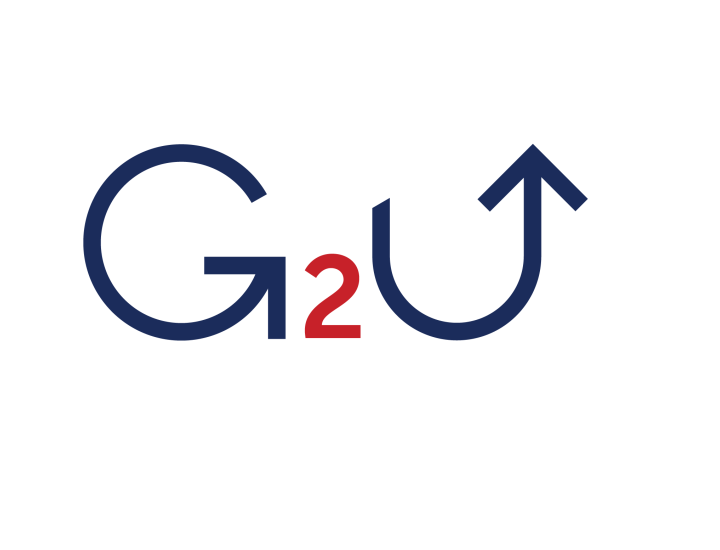GSA and OMB Announce Government Effectiveness Advanced Research Center Challenge Winners

September 10, 2019
Three groups received $300,000 each for innovative solutions to government challenges outlined in the President’s Management Agenda
WASHINGTON — The U.S. General Services Administration and the Office of Management and Budget today announced three grand prize winners of the Government Effectiveness Advanced Research (GEAR) Center challenge. Each winner received an award of $300,000 each. Five honorable mentions were also selected from the pool of highly competitive applicants.
“The GEAR Center was conceived as a way to promote innovation in support of the President‘s Management Agenda,” said OMB’s Deputy Director for Management Margaret Weichert. “GEAR Center Challenge submissions are promising examples of how innovative public-private partnerships can transform government mission delivery, service to citizens and stewardship. The GEAR Center is already creating incentives for cross-sector collaborations that will better serve the American people.”
“The GEAR Center challenge is a creative approach that engages the U.S. research and development system to help government adapt and improve in a rapidly changing world,” said GSA Administrator Emily Murphy. “It also helped form new partnerships between different industries. These impressive winners will bring innovation led by our world class universities and enterprises to influence how the federal government performs.”
The GEAR Center competition challenges problem solvers from the public, academia, and industry to build cross-sector, multidisciplinary teams to demonstrate the potential of the GEAR Center. These teams will describe how this model would tackle one or more of the major challenges facing government outlined in the President's 2019 Management Agenda. The goal is to test the feasibility of the model before further investment and will inform how the GEAR Center could work to deliver these solutions.
GEAR Center Challenge Grand-Prize Winners
Cybersecurity Workforce Collaboration - George Mason University, Mercyhurst University, Rochester Institute of Technology, University of Maryland, Drexel University, SAP, Specialisterne, DXC Dandelion Program, and the MITRE Corporation
Today’s profound shortage of cybersecurity (cyber) talent puts our nation at risk. Neurodiverse individuals, which include those with autism, are a potential, untapped source of talent to fill federal cyber positions, and can be more likely to be retained by federal agencies given their strong fit with cyber work. This project will leverage leading practices, methodologies, and tools that have been used successfully in the private sector and non-U.S. government agencies. This team aims to create a Federal Neurodiversity Cyber Workforce program leveraging the guidance of its advisory collaborators, and then pilot this with a U.S. federal agency. The pilot will focus on training a participating federal agency to identify, hire, onboard, train, support, and retain neurodiverse individuals for cyber positions.
Data for Impact - A collaboration to improve government use of administrative data to measure impact between SkillSource Group and Third Sector Capital Partners, Inc.
Currently, data on federally funded workforce, education, and human services programs are too often held in siloes that prevent local, state, and federal agencies from assessing the true impact of their joint service delivery. This team will collaborate to pilot an approach to integrate currently disparate data that builds on existing state data integration efforts. The team will leverage multiple administrative data sources to measure the impact of Workforce Innovation and Opportunity Act (WIOA) services for Virginia Opportunity Youth with past involvement with the child welfare and/or criminal justice systems.
Data and Evidence for Government and Academic Impact - A collaboration focused on improving the use of evidence and data by the public sector workforce between the Johns Hopkins University Centers for Civic Impact, the Volcker Alliance’s Government-to-University Initiative, and the Mid-America Regional Council
When trying to smartly deploy scarce government resources, using data to drive decision-making is imperative. It is critical that federal practitioners improve how they use data for decision-making and accountability, including for policy development, innovation, oversight, and learning. Better use of data is the key to help them solve problems and achieve mission goals. This project, a collaboration between Johns Hopkins University Centers for Civic Impact, the Volcker Alliance, and the Mid-America Regional Council, aims to help 250 federal practitioners in Kansas City by customizing an existing training curriculum and developing recommendations on how to replicate and scale it in other regions.
Honorable Mentions
Unlocking the Value of Government Data - Deloitte, Google, University of Maryland and Datawheel collaborate to create “pop-up” data marketplaces
This team envisioned creating AI-driven ‘pop-up’ data marketplaces for topics of national interest. Focusing each marketplace on a single topic shifts the paradigm from pushing bulk federal data via static portals to the general public, to establishing vibrant online communities of users. A pilot marketplace was proposed to assess how access to relevant curated data, advanced analytic tools, and mechanisms for collaborating and sharing data-driven insights, could attract and retain active users from public, private, and academic sectors.
Delivering the Workforce of the 21st Century - An initiative to reskill individuals for high-needs jobs by Launchcode
This team proposes integrating a nationally-recognized hybrid learning model into the federal government’s current reskilling efforts. LaunchCode’s model identifies individuals with the capacity to build hard skills in software development regardless of education or background and rapidly trains them to be able to perform in-demand tech roles within an organization.
Secure, Modern, and Mission Capable Credentialing - A collaboration aiming to improve the customer experience and efficiency of the credentialing process between the Institute for Defense Analyses, West Virginia Division of Homeland Security and Emergency Management, West Virginia National Guard, WVReady, University of Maryland-Center for Public Policy and Private Enterprise, and Marshall University College of Information Technology and Engineering.
The team proposes developing an innovative, secure, modern, mission-capable information technology solution hosted by the United States Postal Service to improve the customer experience of navigating the “background check” process and utilizing post offices as local, readily accessible fingerprinting and credentialing service hubs.
Using Data to Put People at the Center and Improve Outcomes - A collaboration hoping to enable the real-time use of administrative data between New America Public Interest Technology and Community Solutions
The team proposes developing and piloting a Homelessness Data hub to collect critical data from communities in the U.S. to benchmark and improve on efforts to end homelessness. The hub would advance the work of dozens of communities working with data to improve the tools of ending homelessness.
Improving Grants Management Using Blockchain Technology - The MITRE Corporation
Approximately $700 billion is invested annually through more than 1,800 diverse federal grant programs. However, grant managers—including those that administer funds from inside the federal government and those from external organizations that receive federal funds—report spending 40% of their time using antiquated processes to monitor compliance instead of data and analytics to monitor results. This team proposes demonstrating the benefits and challenges of a proposed grants management business operating model and blockchain-based Distributed Grants Ledger that addresses this problem using the joint efforts of private sector technology vendors, state government agencies, universities, and community-based service organizations.
###
About GSA: The mission of the U.S. General Services Administration is to deliver value and savings in real estate, acquisition, technology, and other mission-support services across government. One of its four strategic objectives is to design and deliver expanded shared services within GSA and across the federal government to improve performance and save taxpayer money.
To learn more about GSA visit gsa.gov or join the conversation on social media at @USGSA and @GSAEmily.
About Challenge.gov: Members of the public compete to help the U.S. government solve problems big and small. Since Challenge.gov was launched in 2010, more than 102 federal agencies have run more than 900 challenges.


